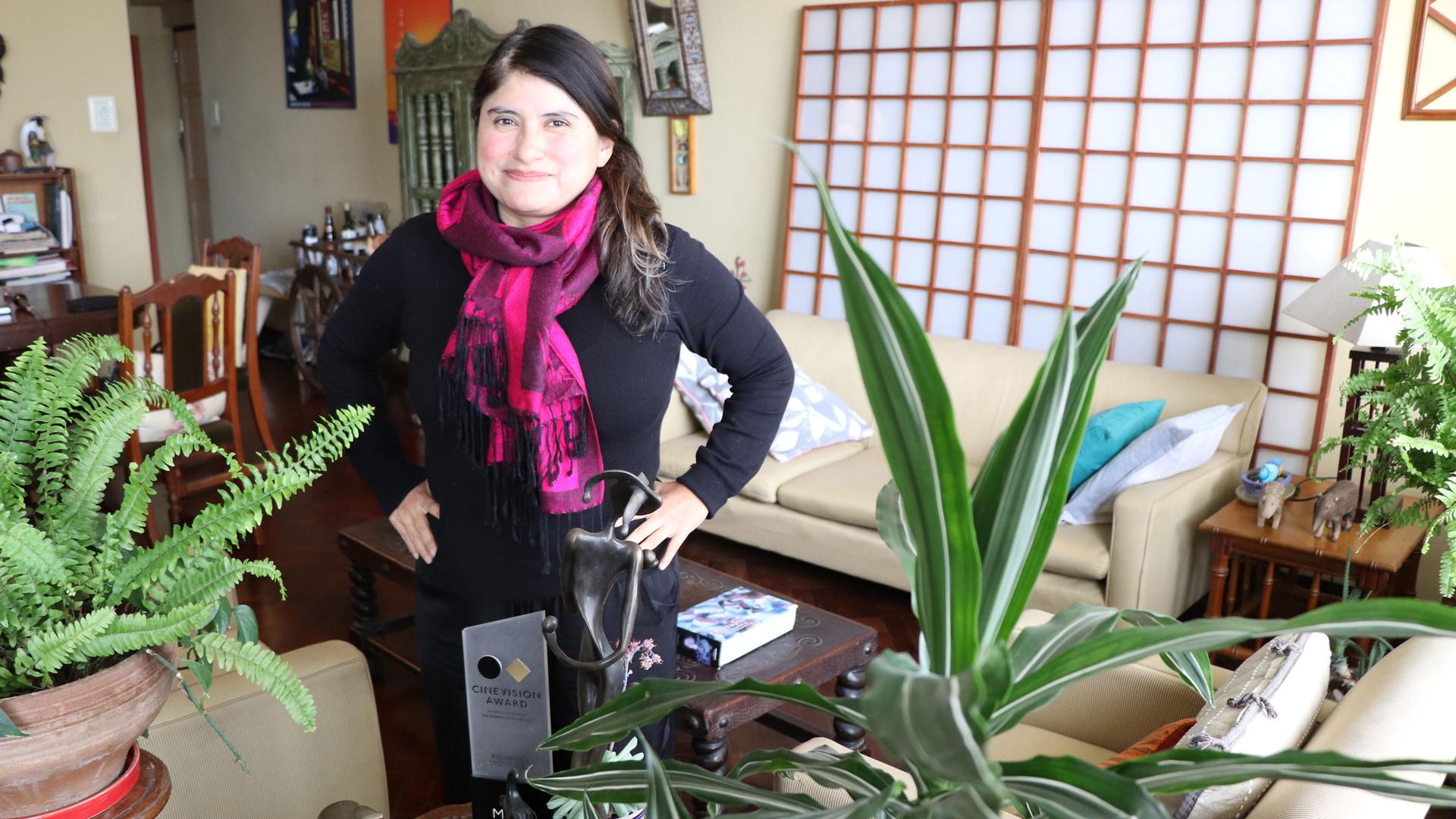Peruvian filmmaker Melina León boosts Peru’s film industry with strong female leads
In the dining room of her family’s apartment in Lima, filmmaker Melina León, the first Peruvian woman to have a movie screened at the Cannes Film Festival, picked up one award out of the dozens of trophies she had on display.
“This is the one I really love because it was the first one,” she said of the award for her 2019 film, “Song Without a Name,” from the Munich Film Festival. “From the bottom of my heart, I never expected to win awards.”
Tucked in among the awards is a bottle of Dior foundation. “This is my makeup that I learned how to use at Cannes,” she said with a laugh.
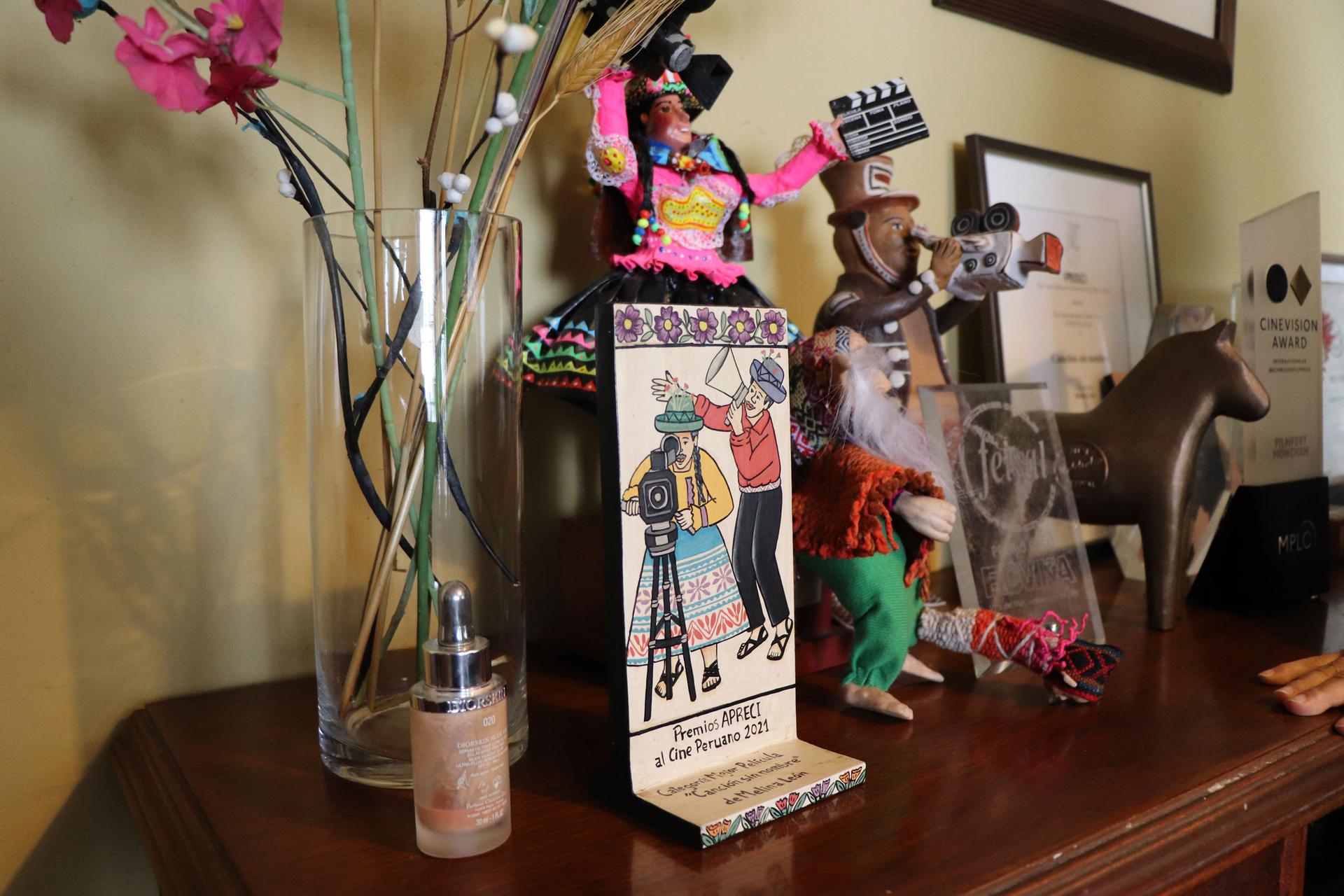
León won 45 awards for “Song Without a Name,” her debut film. It is a harrowing black-and-white account — based on real events — of a young Indigenous woman’s search for her baby who was stolen at birth during Peru’s political turmoil of the 1980s.
With the country’s current political upheaval as a backdrop, León is developing two new film projects — a second feature film and a documentary. She explained that her love for storytelling was born in her family home, where she lives part of the year.
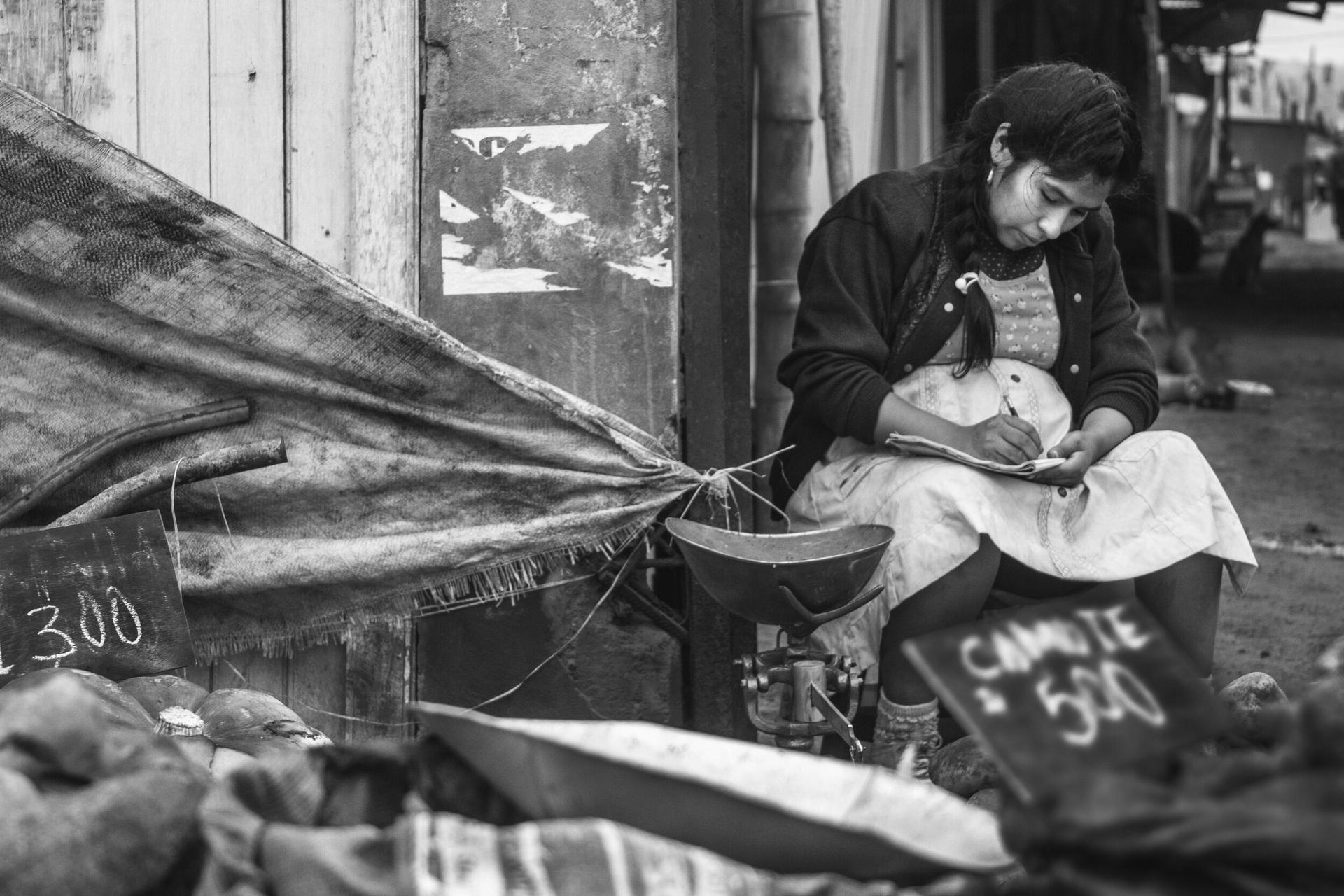
León’s late father was a newspaper reporter. (The journalist in “Song Without a Name” is inspired by him.) Her mother is an anthropologist.
“They are both very connected to stories,” she said. “At this table, there were always stories.”
León said she had wanted to study film, but Peru doesn’t have a film school. So, in 2003 she moved to New York to get a master’s in fine arts at Columbia University on a scholarship. She also borrowed money from a family friend to finance the degree. “Until now, I’m still paying for it, it’s crazy, so expensive,” she said.
“Song Without a Name,” which León started writing while still at Columbia, focuses on a very personal story that also exposes deeply political themes.
“It’s my way to understand colonization,” León said. “How does it work? What are the parts that are bright and beautiful and what are the parts that are dark and, in a way, prevent us from having a proud identity?”
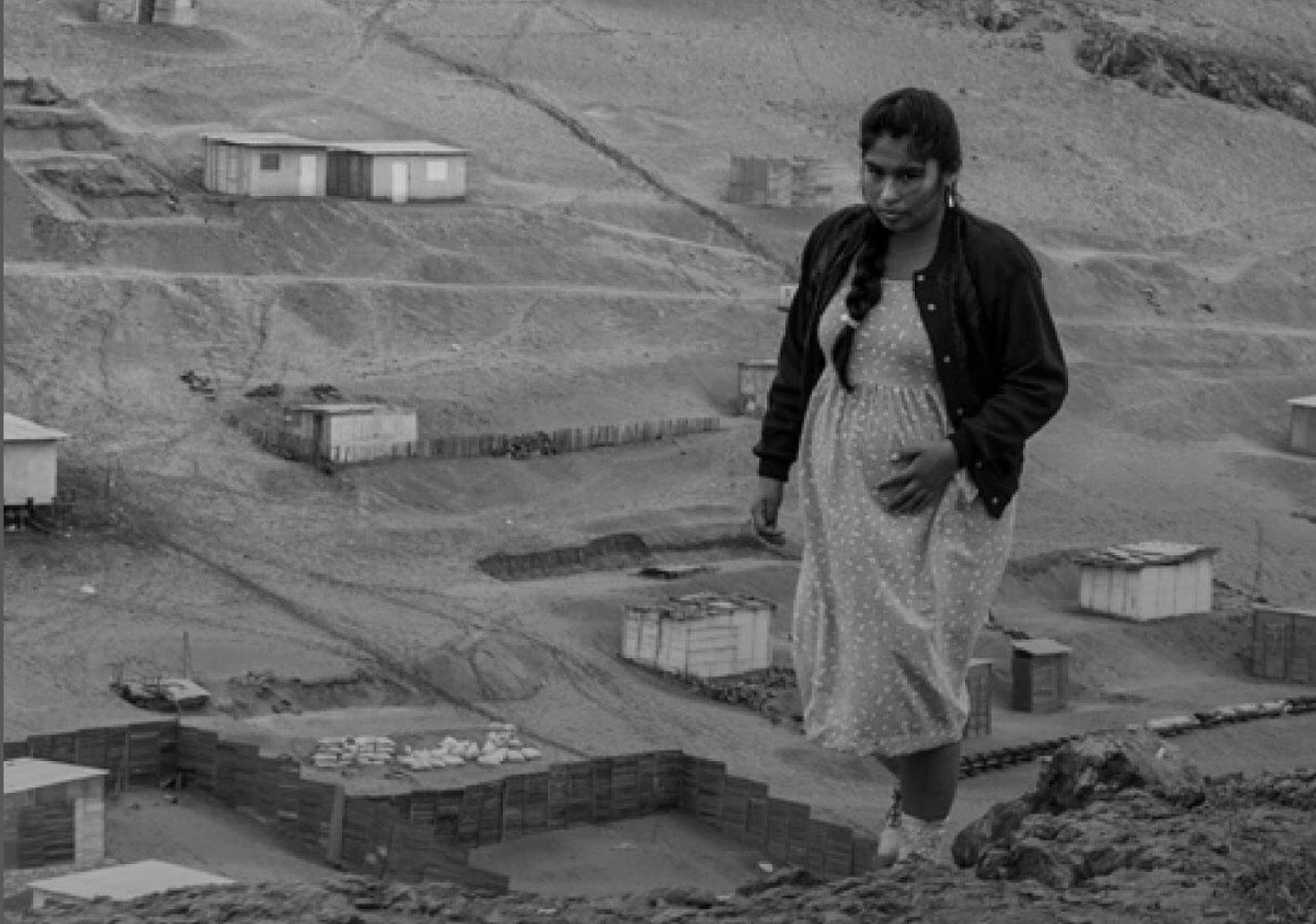
Her new feature film project tells another difficult story of a young female protagonist.
In this script, the tale revolves around an Indigenous girl with epilepsy who lives in Cusco, a city in the Andes. León said the film will explore the tension between science and religion as the girl navigates childhood.
“It’s a story that’s very personal in a way, but also is allowing me to [ask] universal questions,” León said. “Otherwise it’s not going to the world. Movies, I think, should be for everybody.”
León is still raising money for the new film, which she estimates will cost $1.2 million.
Her first movie cost half of that and was financed by several grants, including one from the Peruvian government.
Erika Chávez, the director of Film and New Media at Peru’s Ministry, said the government passed an emergency measure to increase funding for the film industry in 2019. It has since become law.
“Filmmakers demanded an update of this law; they worked together with the government and it was successful,” Chavez said, adding that the ministry currently has a budget of about $6 million to fund movie productions, festivals and scholarships.
Chavez said the government support has helped solidify the importance of films for Peru. “We have a slogan which is, ‘films represent us,’” she said.
The ultimate goal is for a Peruvian film to win an Oscar, Chavez said.
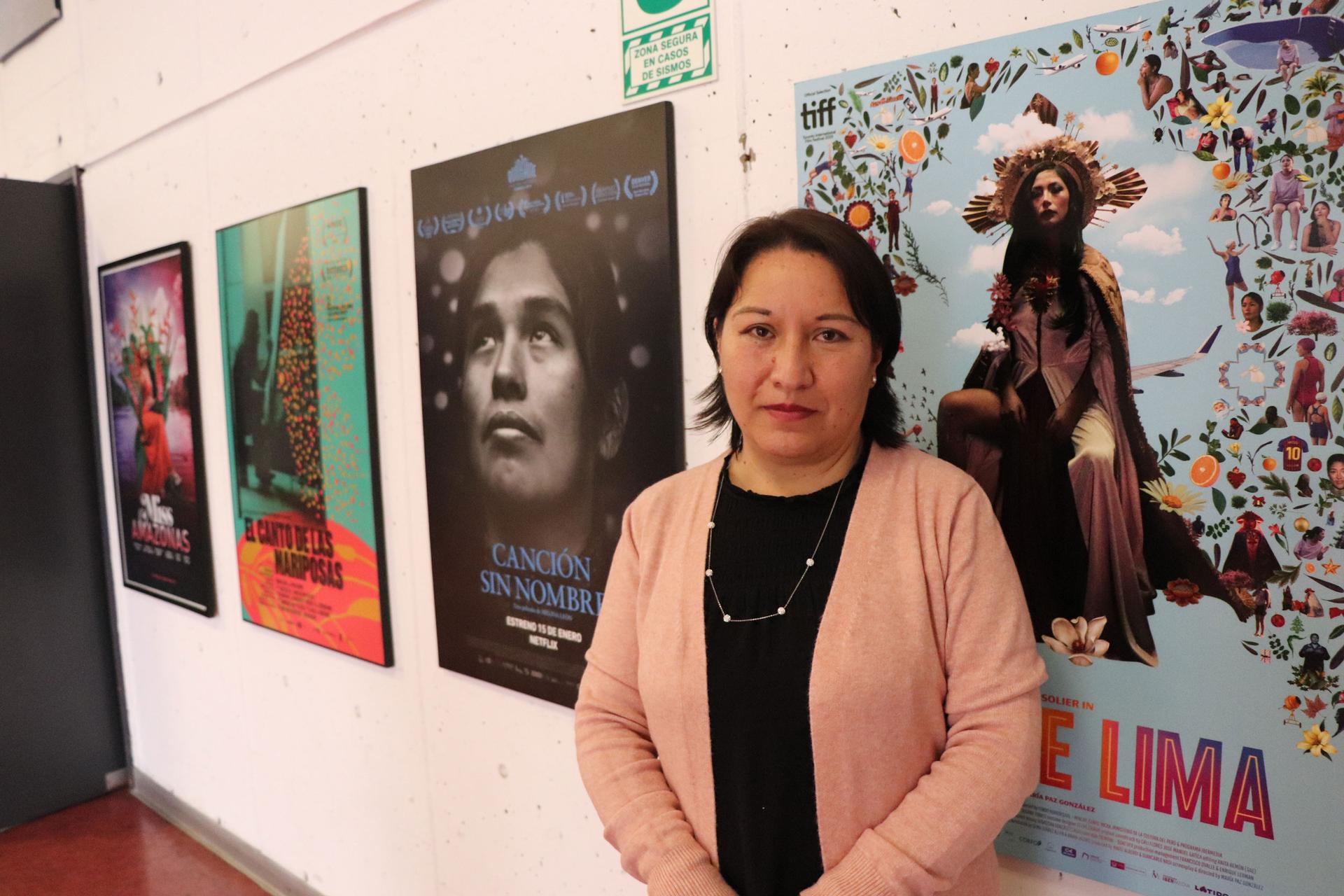
“An Oscar would put Peru on the map and also support the difficult task of continuing to fund movies with public money.”
It would also help Peru’s film industry catch up to neighboring countries.
“Latin America, in the past 20, 20-something years, has gone through a major transformation,” said Carlos Gutiérrez, co-founder and executive director of Cinema Tropical, a nonprofit organization that presents Latin American movies in the US.
“Latin America really has become an epicenter of world cinema.”
He said the growing prominence has been in large thanks to government grants, tax subsidies and the eagerness of local filmmakers to portray their countries’ struggles.
Gutiérrez said that even though Peru has lagged behind Mexico, Argentina and Brazil, it released 68 movies in 2021, a record. He added that León’s fame would probably expand the Peruvian market.
“Having a successful female director sort of inspires other women filmmakers to take the camera and make the films they want,” he said.
León herself has helped found a group to support women film directors in Peru called NUNA. Her hope is that more of them — especially those living outside of Lima — will make movies.
“Culture and art is, in a way, what saves us, connects us and makes us understand each other, this beauty,” she said.
The other project that León is developing veers away from Peru — a documentary about Carlos Aguilar, a Mexican film critic based in Los Angeles, who is a DACA recipient (Deferred Action for Childhood Arrivals).
“He writes for The New York Times, for the LA Times, for Variety, for all these amazing publications, and he still can’t leave the country. He still is a second-class citizen,” León said. “It’s absurd.”
As she works on these new projects, León said she cannot ignore the political turmoil happening in Peru. In recent months, the country’s leftist president, Pedro Castillo, has been embroiled in corruption investigations and impeachment efforts.
“The politics that we’re living now get stuck in your skin, in your soul. At this point, I’m just observing,” she said. “I’m sure at some point I’m going to reflect on everything that has happened in Peru.”
Right now, she is observing everything from Paris, where she is working on her scripts on a fellowship at the Institute for Ideas and Imagination.
Gisele Regatão and Vera Haller are journalism professors at Baruch College in New York City.
Support for this story was provided in part by a PSC-CUNY Award, jointly funded by the Professional Staff Congress and The City University of New York.
